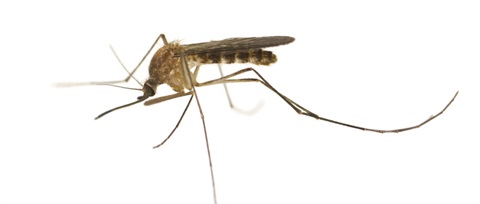West Nile Virus

When temperatures rise, so does the threat of the mosquito-borne West Nile Virus. Researchers believe West Nile Virus is spread when a mosquito bites an infected bird and then bites a person.
Mosquitoes carry the highest amounts of virus in the early fall, which is why the rate of the disease increases in late August to early September. The risk of disease decreases as the weather becomes colder and mosquitoes die off. Although many people are bitten by mosquitoes that carry West Nile virus, most do not know they've been infected.
Risk factors for developing a more severe form of West Nile virus include conditions that weaken the immune system, such as HIV, organ transplants and recent chemotherapy. The elderly, very young and pregnant women also are at a higher risk to contract the virus.
Ways to protect yourself and your family
The key is to reduce the chances of being bitten, by following these tips:
- Eliminate places that might collect water where mosquitoes can lay eggs, such as weeds, tall grass and discarded tires. Even depressions in the ground or a discarded bottle cap can be a potential mosquito-breeding site.
- Regularly empty and clean containers such as birdbaths, wading pools and ceramic garden pots.
- Keep gutters clean. Clogged roof gutters can easily hold enough water to be a major mosquito larvae reservoir.
- Avoid the outdoors at dusk and dawn when mosquitoes are most active. Or wear shoes, socks, long pants and a long-sleeved shirt when outdoors at these times.
- Use mosquito repellents, being sure to follow manufacturer's directions. Repellents containing DEET (N, N-diethyl-m toluamide) and Picaridin (KBR 3023) are considered the most effective.
Mosquito population control in Oak Park
The Des Plaines Valley Mosquito Abatement District treats all street catch basins with larvicide every seven to 10 days during the mosquito breeding season. The abatement district also will treat catch basins on private property on request, provide information on acquiring mosquito-larvae-eating gambusia fish for ornamental ponds and pick up old vehicle tires. Call 708.447.1765 for more information.
Mosquito spraying notification
Spraying for adult mosquitoes typically is a tool of last resort. The Des Plaines Valley Mosquito Abatement District determines if spraying for adult mosquitoes is needed. Residents who wish to be notified when the Des Plaines Valley Mosquito Abatement District has scheduled spraying for adult mosquitoes can sign up at www.oak-park.us/notifyme. Registrants will be notified by an automated telephone system, email and/or text message as soon as possible following a decision to spray in Oak Park. Individuals without computer access may call 708.358.5694 to leave their phone number for telephone notification only. Spraying is only conducted in response to elevated levels of West Nile Virus in an area. Visit www.desplainesvalleymad.com for information about spraying.
Report dead birds
Dead birds should be reported by calling 708.358.5694 or by emailing health@oak-park.us. Only birds that have been dead less than 48 hours and appear to have died from a natural cause should be reported. Depending on the bird’s condition and species, a Health Department staff member may pick up the carcass for testing.
How worried should I be about getting infected?
The chance of being infected with the West Nile Virus actually is very small. Less than 1 percent of mosquitoes are infected, and less than 1 percent of the people who are bitten by an infected mosquito will become severely ill. Persons 50 years old or older, and those with compromised immune systems, are most susceptible. More information about West Nile Virus is available on the Illinois Department of Public Health website.

